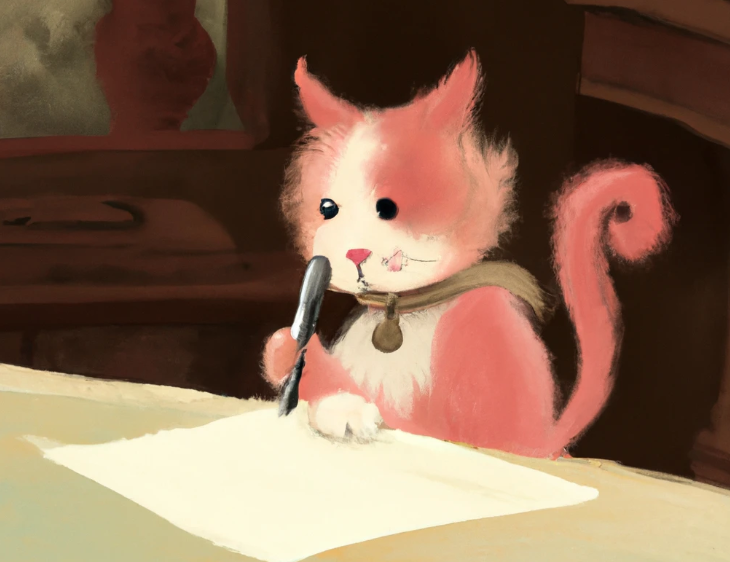Consider writing your students letters at the end of the year. They can include a brief quote about, thank you toward, or words of encouragement to your students.

Teachers have a unique opportunity to leave a lasting impression on their students. One powerful way to achieve this is by writing personalized encouragement letters to each student. These heartfelt messages testify to their growth, accomplishments, and the teacher’s belief in their potential.
Your students will appreciate letters long after your class is over.
Creative End-of-Year Letters to Students
You could even be creative with it. My high school art teacher asked every student to write one positive statement about each other student. He handed out a list of all students’ names, and we were to write now positive sentences about each classmate. Then, he cut them into strips and collected them. Next, he glued them onto one sheet of paper of positive statements from classmates. Finally, he handed each sheet out to us.
They were really specific, I remember. For example, many people wrote that they appreciated how IO always spoke my mind and had strong opinions, and fought for them. I had never really seen myself like that before. I was really touched. Even as an adult, I have hung on to this end-of-year letter.
He also gave us USBs with some uplifting audio messages we could listen to. One included “Always wear sunscreen” audio.
Sample end-of-year letter
Here is a letter I wrote to my level 5 students at the end of the year. You can use it as a sample letter to your students. You could even use Chatgpt to write a more tailored letter to your students.
Dear ESL Level 5 Students,
I am so proud of your hard work mastering English this year. You embraced challenges and made impressive progress. Your dedication and efforts will continue shaping your future and filling it with endless possibilities. Thank you for your commitment to personal growth, along with your commitment to each other’s growth. You brought joy and inspiration to our class community every day.
I look forward to seeing all you accomplish moving forward!
Warm wishes,
Ingrid Pimsner
How do teachers sign off their emails?
Teachers typically sign off their emails using a professional and polite closing that reflects their role as an educator. Here are some common ways teachers sign off their emails:
- Best regards,
- Sincerely,
- Warm regards,
- Thank you,
- Yours faithfully,
- Respectfully,
- With appreciation,
- In partnership,
- With warmest wishes,
- Yours in education.
It’s important for teachers to choose a sign-off that aligns with their personal style and the level of formality required for the specific communication.
The Lasting Impact of Year-End Letters: Empowering Students through Encouragement and Reflection
In this blog post, we will explore why teachers should embrace the tradition of writing year-end letters and provide practical guidance on creating meaningful and impactful messages that uplift and inspire.
Celebrating Achievements
Writing year-end letters allows teachers to celebrate the achievements and progress of their students throughout the academic year. It’s an opportunity to acknowledge their hard work, perseverance, and specific milestones they have reached. By highlighting their successes, teachers validate their efforts and boost their confidence, fostering a sense of pride and accomplishment.
Recognizing Personal Growth:
Beyond academic achievements, year-end letters offer a platform to acknowledge and celebrate students’ personal growth. Teachers can reflect on their students’ resilience, character development, and the positive qualities they have exhibited. By recognizing their growth, teachers instill a sense of self-awareness and encourage further development.
Building Stronger Connections
Year-end letters allow teachers to deepen their connection with students. By writing personalized messages, teachers demonstrate their care, support, and investment in their students’ well-being. This strengthens the teacher-student relationship, fostering trust and open communication.
Inspiring Future Endeavors
Encouragement letters also inspire students as they move on to a new academic year or embark on their future endeavors. Teachers can motivate their students by sharing words of wisdom, goals, and aspirations. These letters can become valuable keepsakes, reminding students of their capabilities and encouraging them to reach for their dreams.
Guidance for Writing Encouragement Letters
To assist teachers in crafting impactful year-end letters, this blog post will provide practical tips and prompts to inspire heartfelt messages. From expressing appreciation and personalized anecdotes to sharing hopes and well wishes, teachers will discover the power of their words in uplifting and motivating their students.
Here are some related posts
- The Skillful Teacher: The Top Must-Read for Boosting Your Teaching Game
- Practice English: Creative Writing Prompts
- All about Phonics










